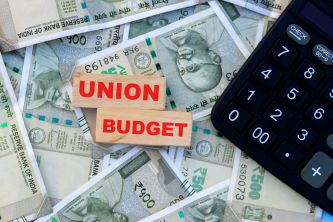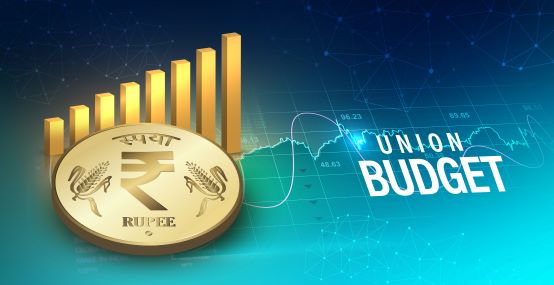10 Taxes Affected by Budget

Introduction
Taxes are the most crucial and most significant source of revenue for the Government. The Government uses the revenues generated from taxes to provide basic facilities to its citizens and the nation's overall development. For example, construction of roads, buildings, infrastructure, public healthcare facilities, providing various subsidies, etc.
However, to ensure an adequate balance between revenue generation and financial pressure on the public, the Government makes several changes to the existing tax structure from time to time. The Government usually makes these changes while presenting the Union Budget of India.
Every year, on the first of February, the Finance Minister of India presents this Union Budget in Parliament. Also known as the annual financial statement of India, the budget contains the details of the revenue sources and expenses to be undertaken by the Government during the applicable financial year.
This article will discuss how the Union Budget can affect various taxes in India. But first, let's learn about the existing tax structure of our country.
The tax structure of India
India has a well-structured, three-tier federal taxation system. It consists of the Central Government, various State Governments, and local municipal bodies. Coming to taxes, there are two types of taxes in India – Direct Taxes and Indirect Taxes.
Direct Taxes
Direct taxes are levied directly on individuals and corporate entities. These taxes are non-transferable. The Central Board of Direct Taxes (CBDT) is responsible for governing and regulating direct taxes in India.
Income tax is the most common form of direct tax in India. It refers to the tax individuals have to pay against their annual income. Other direct taxes in India include wealth tax, capital gains tax, corporate tax, gift tax, and property tax.
Indirect Taxes
Indirect taxes are imposed on the sale and purchase of products and services. These taxes form the most significant source of revenue for the Government.
Some examples of indirect taxes in India include service tax, sales tax, value-added tax, excise duty, customs duty, securities transaction tax, stamp duty, and entertainment tax. Few of these taxes – such as sales tax, value-added tax, service tax, etc. – were replaced with a single tax known as the Goods and Services Tax (GST) in 2017. However, other indirect taxes are still operational.
How does the budget affect these taxes?
Now, let's learn how the Union Budget can impact these taxes:
· Income Tax
All earning citizens of India must pay income tax as per the applicable tax rate. These tax rates are mentioned in the income tax slab decided by the Government of India. As per the existing income tax slab, the lowest tax rate is 5%, while the highest is 30%.
The Government can propose changes to the income tax slab while presenting the Union Budget. These changes can come into effect after Parliament's approval and change income tax rates. Besides, any changes in the tax exemption rules can also impact the payable income tax.
· Capital Gains
Capital gains taxes apply to gains made from equity investments, such as stocks and mutual funds. Different asset classes may attract different tax rates. The Government may propose changes to the capital gains tax structure in the Union Budget.
· Customs duty and excise duty
Customs duty and excise duty are applicable on import and export of goods. The Government may increase or decrease these duties in its annual budget.
· Goods and Services Tax
There are four GST rate brackets under which goods and services are taxed in India. The Government can make changes to these tax brackets and the list of products and services under them.
· Securities transaction tax
Securities Transaction Tax (STT) applies to the values of securities traded through a recognised stock exchange in India. As of now, the applicable STT is 0.1% for delivery-based equity trading. The Government can change the STT rate or remove it in the upcoming Union Budget.
Conclusion
The Government usually increases tax rates when the fiscal deficit rises to unacceptable levels or a shortage of funds. But usually refrains from making radical changes to the taxation system until there is a strong need for them.
Disclaimer – ICICI Securities Ltd. ( I-Sec). Registered office of I-Sec is at ICICI Securities Ltd. - ICICI Venture House, Appasaheb Marathe Marg, Prabhadevi, Mumbai - 400 025, India, Tel No : 022 - 6807 7100. The contents herein above shall not be considered as an invitation or persuasion to trade or invest. I-Sec and affiliates accept no liabilities for any loss or damage of any kind arising out of any actions taken in reliance thereon. The contents herein above are solely for informational purpose and may not be used or considered as an offer document or solicitation of offer to buy or sell or subscribe for securities or other financial instruments or any other product. Investments in securities market are subject to market risks, read all the related documents carefully before investing. The contents herein mentioned are solely for informational and educational purpose.
Please Enter Email
Thank you.
Related content

Articles - Personal Finance
What is PM Gati Shakti Yojana
Hon'ble Finance Minister Nirmala Sitharaman unveiled three major economic railway corridors in the interim budget of 2024 for the PM Gati Shakti Yojana. Explore detailed information about PM Gati Shakti Yojana.

Articles - Personal Finance
Analysis of Interim Budget 2024
Get to knwo about the impact of interim budget 2024 and a detailed analysis in this article.

Articles - Personal Finance
What Is a Surplus Budget
Learn about surplus budget and how a budget surplus impacts the economony.

Articles - Personal Finance
What is a Budget Deficit
Find out the importance of budget deficit. Cause of budget deficit and What is the relationship between budget deficit and stock markets

Articles - Personal Finance
Union Budget 2024 – Trivia Part 2
The Union budget 2024 presentation is just around the corner. Let us look at some trivia regarding the Union budgets from the past

Articles - Personal Finance
What is Union Budget and Why it so Important
Learn about the what is the Union Budget in this article for a comprehensive information of its importance.

Articles - Personal Finance
Union Budget: Key Details & Importance
As we come closer to February 1, the chatter around the expectations over Union Budget increases. From young college students looking to start their careers and small business owners to leading economists and industrialists, almost every Indian citizen keeps a tab on the Budget announcement. Let us discuss what is Union Budget and its importance for the economy.

Articles - Personal Finance
Impact of the Budget 2024 on Share Markets
The Union Budget 2024 got quite a cheer from the share market as major indices ended on a positive note. The NIFTY 50 and the Sensex benchmark indices gained during the Budget speech and finished green.

Articles - Personal Finance
What to Expect From Budget 2022 for Individuals and Salaried People
Over the last two years, individuals, especially salaried people, have taken quite a hit because of the pandemic. Work from home has not only increased expenses such as electricity and WiFi bills but has also put a strain on take-home salary. Naturally, people hope that the government will step in and ease some of these troubles through their Union Budget announcements.

Articles - Personal Finance
What is the impact of the Union Budget on the Indian Stock Markets
Indian stock markets are dynamic prone to ups and downs depending on a host of factors. Every year, one major event that impacts the equities and bond markets is the announcement of the Union Budget.

Articles - Personal Finance
History of the Union Budget in India
The ritual of presenting the Indian Budget is more than two centuries old, dating back to colonial times. India's first-ever Budget was presented by James Wilson in 1860, a Scottish economist and politician.

Articles - Personal Finance
What is Populist Budget
A budget typically meant to please people is known as a populist budget. It spends more on lucrative schemes that can increase the Government's fiscal deficit. Such a budget doesn't have any enduring positive impact on the country's economy.

Articles - Personal Finance
What are the Components of Union Budget
The Union Budget of India has two main components, each with two sub-components. To know more in detail, visit the link.

Articles - Personal Finance
Types of Budget in India
Deep dive into the three different types of government budgets and their impact on the economy.

Articles - Stocks
What is the Budget? Union Budget for Beginners
The Finance Minister of India presents the Union Budget on the first day of February every year. It is also known as the annual financial statement of the country. It contains the details of the revenue sources and expenses undertaken by the Government during the applicable financial year.

 Top Mutual Funds
Top Mutual Funds







COMMENT (0)